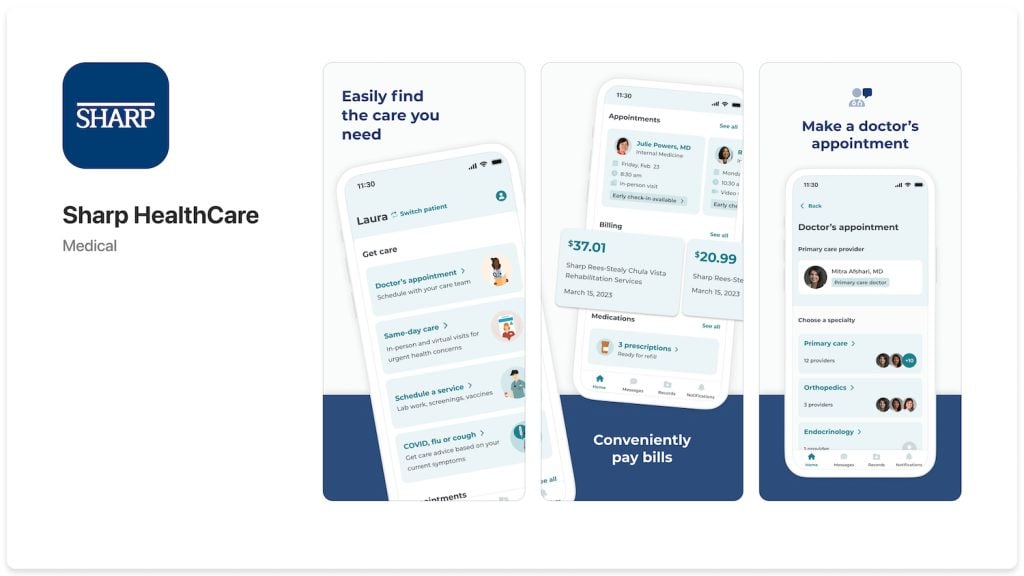If Sharp HealthCare had a word of the year, it’d be “tech.” In 2024, Sharp deployed a single platform for medical records, making it easier for staff and patients to access important information. The hospital group also launched its new Sharp app to give patients and their family members access to this centralized platform.
Sharp.com is about 20 years old at this point, and it was time for an upgrade, says Dan Exley, the interim chief information and innovation officer. The platform can assist patients with things like billing and scheduling, but also help family members get information—with patient consent, of course—about hospitalized relatives.

According to Exley, more than 325,000 San Diegans have created accounts on the Sharp app in the past six months. And Sharp’s hospitals are getting more connected, too. Almost all patient beds now have iPads that contain details about patients’ hospital stay, tools to communicate with the care team, and educational information.
Exley says the iPads help with equity, ensuring that patients and their families can all access the same information from their care team, regardless of their understanding of medicine or the language they speak.
“It lowers the barrier to care,” he adds. Sharp is also exploring ways to ethically use AI in clinical settings.
That includes working to get ambient voice and digital scribe services to more physicians. If providers have their patient’s consent, they can record conversations and save their focus for face-to-face discussions. The recording will capture things that typically wouldn’t be noted in patients’ charts, like a patient expressing concerns over visiting a grandchild because they are immunocompromised. Doctors can also then edit and tweak the information from the recording to ensure accuracy.
“Physicians say, ‘My notes are richer,’” Exley explains. “They capture more meaningfully the nature of the conversation.”
Exley adds that Sharp hopes to continue advancing this technology. In the future, patients may be able to toggle over to a screen showing doctors’ visit notes with less technical jargon.
Sharp is also looking at how generative AI can help in analyzing data. “Our uses of AI always have a human in the loop, but it supercharges our decision making,” Exley says.
Many of Sharp’s latest developments begin at the Prebys Innovation and Education Center. Opened in 2023, the center includes a wet lab for new technologies, where staff can experience developments as a patient would in the hospital setting and give feedback.

A Sharp provider demonstrates the new Apple Vision Pro headset.
The organization is also integrating tech from other companies. When Apple launched its Vision Pro device, Sharp was an early adopter, creating the Spatial Computing Center of Excellence to identify ways the technology could enhance patient care, like helping surgeons who perform complex procedures by allowing them to manipulate anatomy in 3D.
“What Sharp has been doing with technology and innovation in the past few years is making sure we have platforms that help our patients and our caregivers and help us do [data] analytics,” Exley says. “Those themes will continue to drive our innovation.”












